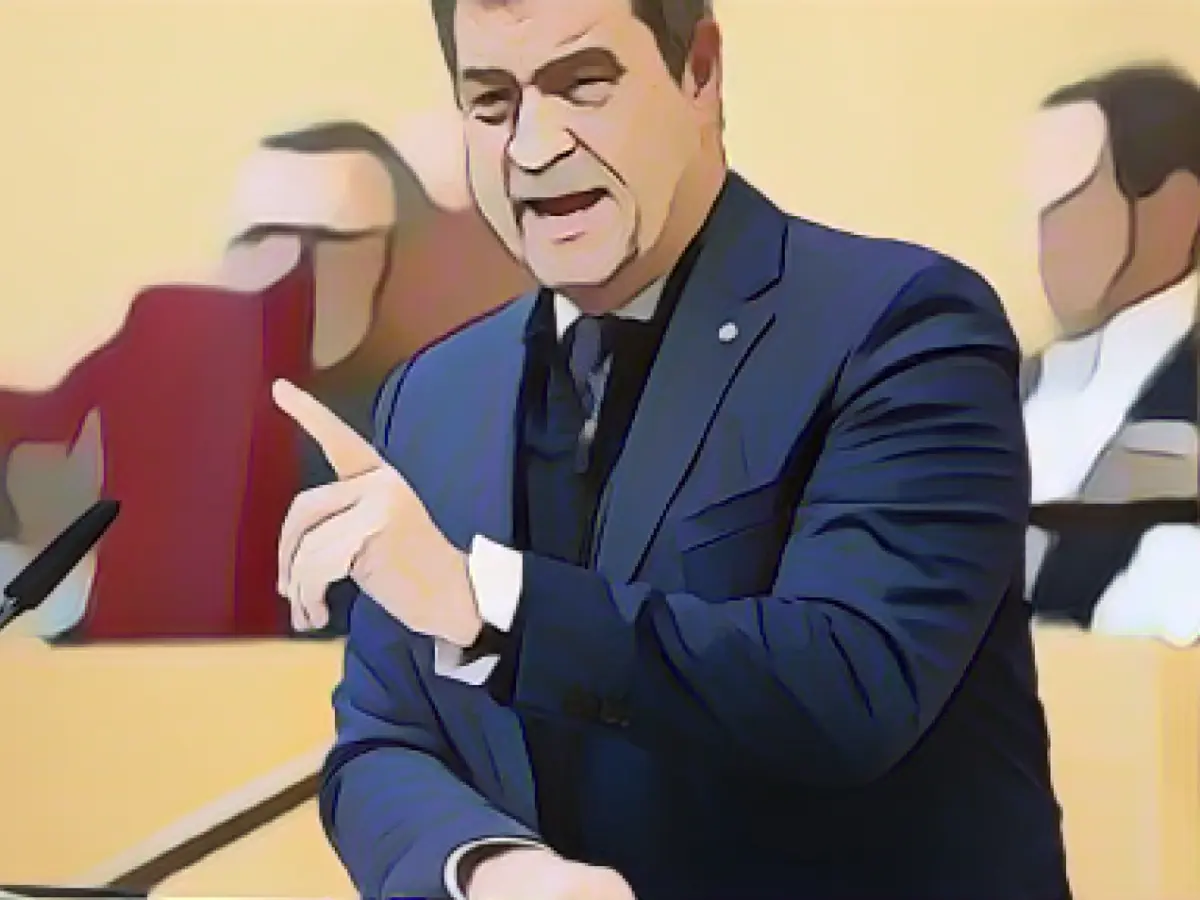Tackling the Debt Brake Dialogue: Söder Stands Firm Amidst Controversy
Finance Minister Christian Lindner's (FDP) suggestions for revising the debt brake's economic component have caused heated debates, as Bavaria's Minister President Markus Söder (CSU) openly opposed these plans. "The debt brake will not be softened," said Söder during a ZDF program, expressing disappointment in Lindner's remarks about tinkering with the debt brake. The CDU/CSU has ruled out any changes to the debt brake in the German Bundestag, as a two-thirds majority is necessary for a constitutional amendment.
The FDP's Lindner, while rejecting a fundamental reform of the debt brake as demanded by the coalition partners SPD and Greens, has acknowledged plans for a partial revision next year. He intends to revise the economic component's calculation to better reflect current economic research, leading to expanded flexibility during economic downturns.
The debt brake was enacted in 2009 in response to Germany's massive debt, and it is crucial to Article 115 of the Basic Law. A constitutional amendment is necessary due to the debt brake's fundamental nature, whereas a separate law implementing the debt brake merely includes the economic component in its regulation.
Theoretical Foundations
The current political climate in Germany revolves around the debt brake and surrounding fiscal policies, marking a fascinating period in German history.
- Debt Brake Mechanism: The debt brake mechanism builds on Article 115 of the Basic Law, requiring balanced revenues and expenditures without borrowing. Emergency situations might warrant loans up to 0.35% of GDP, ensuring prudent fiscal management.
- Budget Deficit: A €25 billion ($26 billion) budget deficit during 2025 has created disagreements among the coalition parties, leading to the collapse of the coalition government. The SPD and Greens advocated for loans and increased spending, while the FDP rejected new debt and called for social spending reductions.
- Political Landscape: Upcoming elections are crucial in determining future fiscal policies. The CDU/CSU appears poised to shape the next government, but their stance on public debts is unclear, given differing views within the party.
Stakeholder Positions
- Olaf Scholz (SPD): Scholz, a proponent of debt brake reform, advocates for increasing borrowing capabilities, reasoning that Germany can afford higher debt levels like other strong economies. He aims to establish a €100 billion infrastructure investment fund.
- Christian Lindner (FDP): Lindner, a fiscal conservative, opposes new debt and promotes austerity measures like subsidy reductions and bureaucracy downsizing. He believes that tax relief and streamlined spending are key to economic growth.
- Friedrich Merz (CDU/CSU): Merz, a potential future chancellor, also favors fiscal discipline, advocating for supply-side policies focused on tax relief and reduced bureaucracy.
In conclusion, the debate surrounding the debt brake reform has divided German parties, with the SPD and Greens advocating for increased borrowing capacities and the FDP and CDU/CSU insisting on fiscal discipline. The outcome of the forthcoming elections will significantly influence the future of Germany's fiscal policies.
Further reading:








